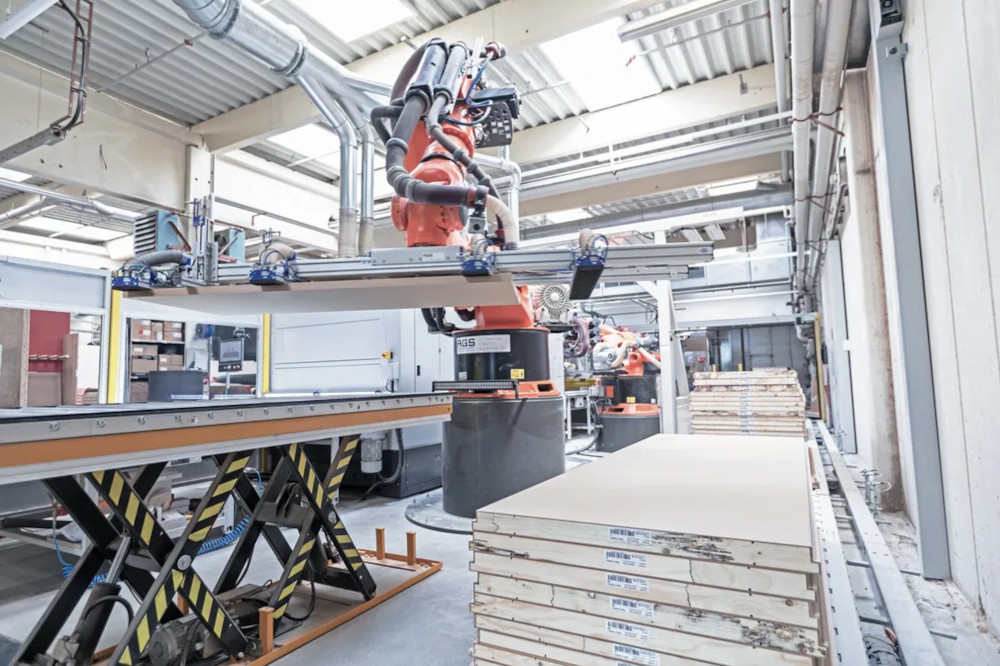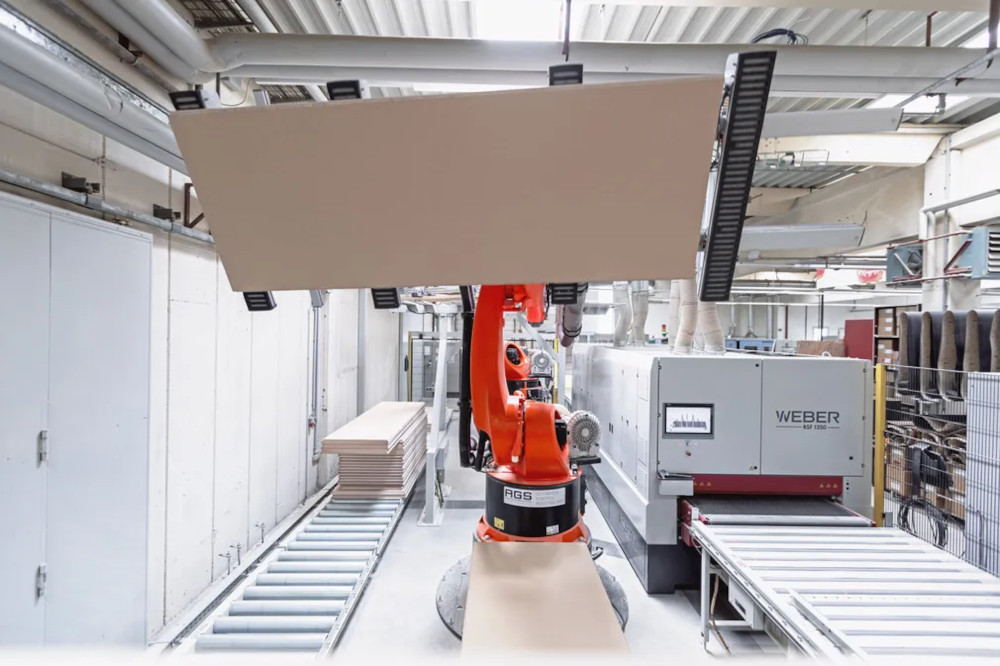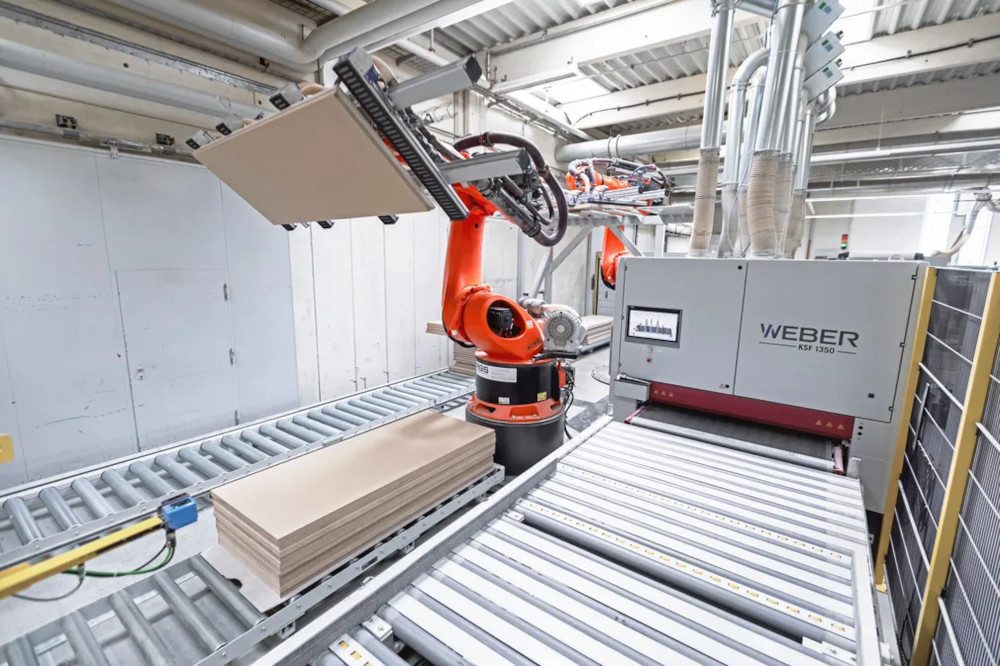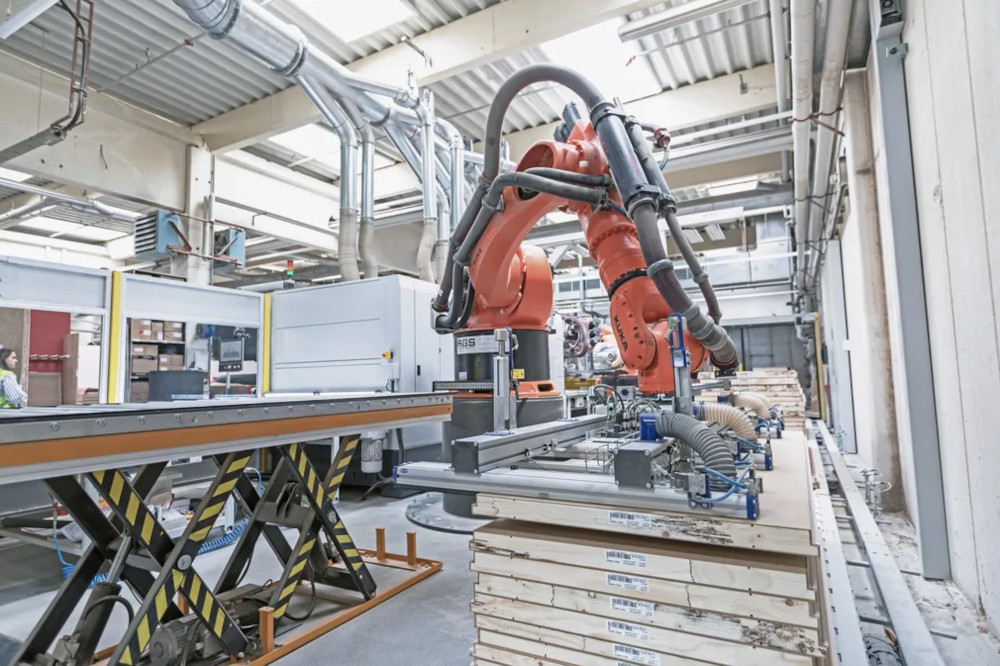Schmalz ergonomic suction spider takes the weight out of lifting
13 March 2024Schmalz has partnered with Josko to install a suction spider that can lift 80kg, 80 times a day in eight hour shifts.
The company, which started out as a one-man carpentry business in 1960, generated a turnover of €215m in 2022 with more than 1,000 employees. At its headquarters, in Kopfing im Innkreis in Upper Austria, Josko produces wood, plastics/aluminum and aluminum windows, house doors and interior doors on 39,000m².
With sustainability in mind, Josko relies on short transport routes and sources its wood primarily from local forests. Production waste is recycled or used to fuel the company's own biomass power plant. This enables the manufacturer to cover part of its electricity requirements from renewable resources. When it comes to employees, the focus is also on environmental protection. Josko trains skilled workers and keeps working distances short.
Ergonomics are also important to the company so as not to impair the health of its employees. Numerous systems from Schmalz support the skilled workers in handling the often heavy and bulky workpieces. On average, an interior door weighs around 70kg to 80 kilograms. However, 100 kilograms is also possible. The size is variable, with a maximum width of 1.3 meters and a maximum length of three meters.
Josko was looking for an alternative because spare parts were no longer available for the old, so-called turning system on the sanding machine.
"The new system is intended to relieve our skilled workers and increase the degree of automation," said Rainer Plöckinger, Interior Doors Foreman at the Kopfing location.
Together with the industrial company, Schmalz Austria set about developing a suitable system. Another requirement from Josko was that the new system should no longer require manual programming.
"The WEBER KSF sanding machine, two Kuka robots and our handling solution therefore work together fully automatically," said Christian Prießner, MD, Schmalz Austria.
Protected behind bars, the first robot picks up a blank from the stack and places it on a conveyor belt in front of the machine. The door leaf passes through the machine, which calibrates and grinds the surface. On the other side, the second robot picks up the blank and places it from above on a rack located between the two machines. The first robot picks it up again from the bottom, turns the door leaf and places it in front of the sanding machine again – with the reverse side facing upwards. On the second pass through the machine, the other half now also receives its finish. As soon as the processing of the front and back is complete, the second robot places the door on the "finished" stack.
A suction spider from Schmalz ensures a safe grip. With significantly larger dimensions than the crawling animal and designed by the vacuum experts to meet Josko's exact requirements, one of these grippers sits on each robot arm. The low weight of the basic components made of aluminum profiles enables fast cycles, and the FMP-S gripping system with sealing foam is perfect for handling heavy and rough workpieces such as door leaves. Vacuum generation takes place via a connector to the compressed air network and is controlled by valves. Thanks to the integrated system monitoring and sensor technology, the suction spiders work with absolute process reliability.
The interaction between the robot and gripper moves around 70 to 80 door leaves per day, which pass through the workstation in an eight-hour shift. Since the start of operations in 2020, the system has processed round 50,000 blanks - fully automatically and ergonomically, without burdening employees with strenuous activities such as moving the heavy elements.
"We are more than satisfied with the solution," added Plöckinger. The highlight for staff: individual dimensions are stored in the system for different blanks, which the specialists select via the display. Manual programming is finally a thing of the past. "We have also eliminated a potential source of errors," says Plöckinger.



